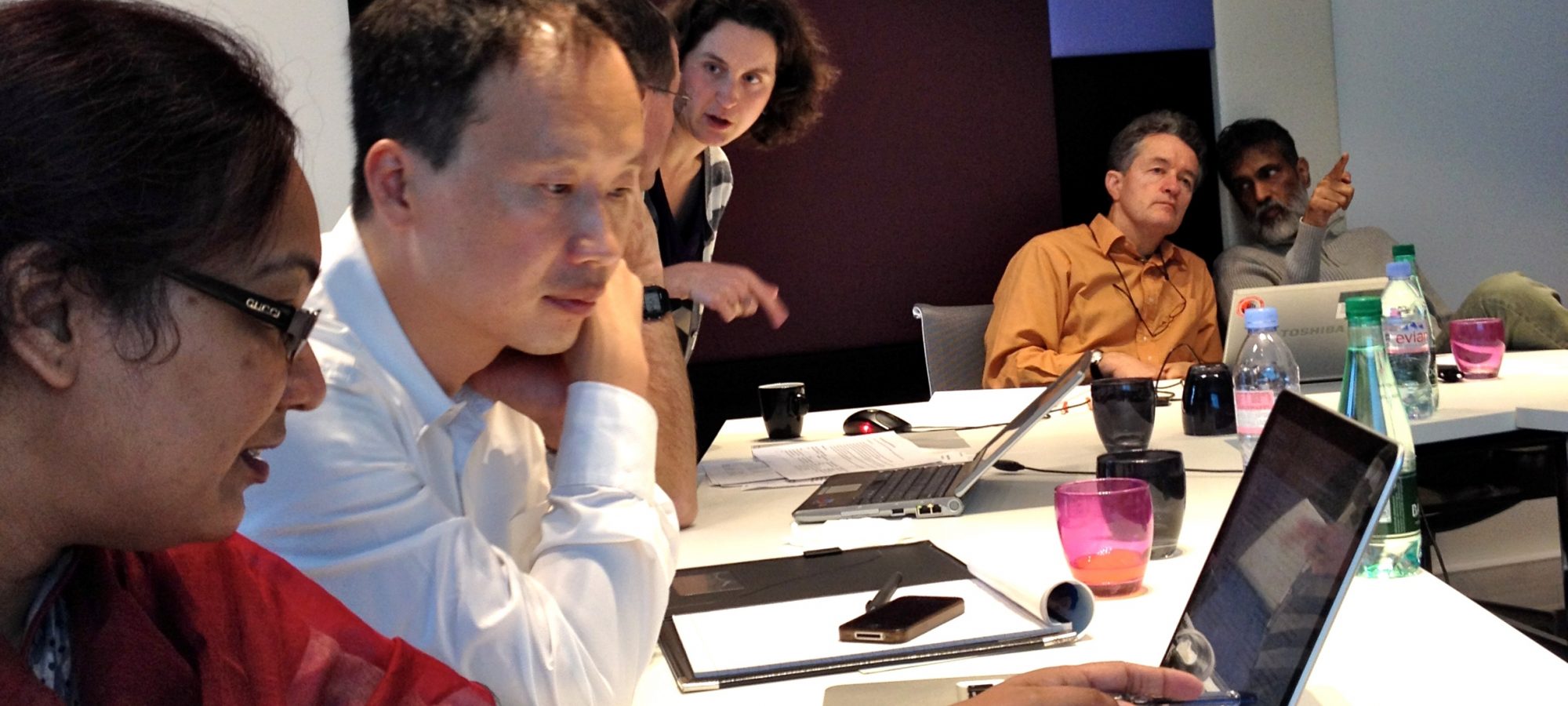Dr Kirstie Graham, Malaria Consortium Technical Officer and Project Coordinator for COMDIS-HSD, recently travelled to Paris to participate in discussions regarding a potential multi-country research study on quality of care.
COMDIS Health Service Delivery (COMDIS-HSD) is a research programme consortium (RPC) that seeks to provide evidence to policy makers in low-to-middle income countries to help improve the way health services are implemented. More broadly, through its work the RPC seeks to impact policy and practice, both nationally and internationally. The RPC is led by the Nuffield Centre for International Health and Development at the University of Leeds, with partner organisations in Bangladesh, China, Nepal, Pakistan, Ghana, Uganda, Swaziland.
The RPC’s research and development is based around 7 themes, including quality of care, that aim to improve demand for, access to, and quality of prevention and care for common diseases, in particular in marginal populations, rural areas, migrants and fragile states. The RPC develops, tests and refines packages of essential curative and preventive services.
Within COMDIS-HSD, Malaria Consortium is conducting a number of different operational research studies, to help maximise the quality of the interventions we implement, such as integrated community case management (ICCM). ICCM is an approach that aims to train community-based health workers to identify, treat and refer children under-five with malaria, pneumonia and diarrhoea and is increasingly being used as an integral part of health systems in many sub-Saharan countries, in order to improve access to healthcare, especially in hard to reach areas.
Last month, COMDIS-HSD partners met in Paris to discuss a potential operational research study, which would aim to explore whether and how the approaches used for research and development within the RPC affect the quality of health care delivered across different partner countries. It would be an ambitious and exciting project seeking to critically examine the work of the RPC. The study would intend to harness and capture the breadth of experiences from the different country contexts and partner organisations within the RPC, emphasising partner-to-partner collaboration and helping to ensure that the lessons learned from the RPC as a whole are greater than the sum of the parts.
The need for a study such as this, which specifically focuses on the approaches used within the RPC and whether these affect quality of care, rather than solely on the impact of the interventions themselves, is clear. Given the wealth of partners’ experiences within COMDIS-HSD, which began in 2011 and builds on the work of COMDIS – a previous RPC focused on communicable diseases – it is easy to assume that the approaches we use have worked, or continue to work, in particular settings. It is important for us to stop and think whether what we do, and how we do it, achieves the purpose for which it was intended.
From this study, COMDIS-HSD would aim to document the lessons learned, both what has worked and what has not, producing a set of recommendations to help guide research, development and implementation of public health interventions to maximise quality of care. This study is in the early stages of development and approval, and would be designed to run over the remainder of the consortium, which is funded by UKaid until December 2016.
For more information on COMDIS-HSD’s work, please visit the website.
